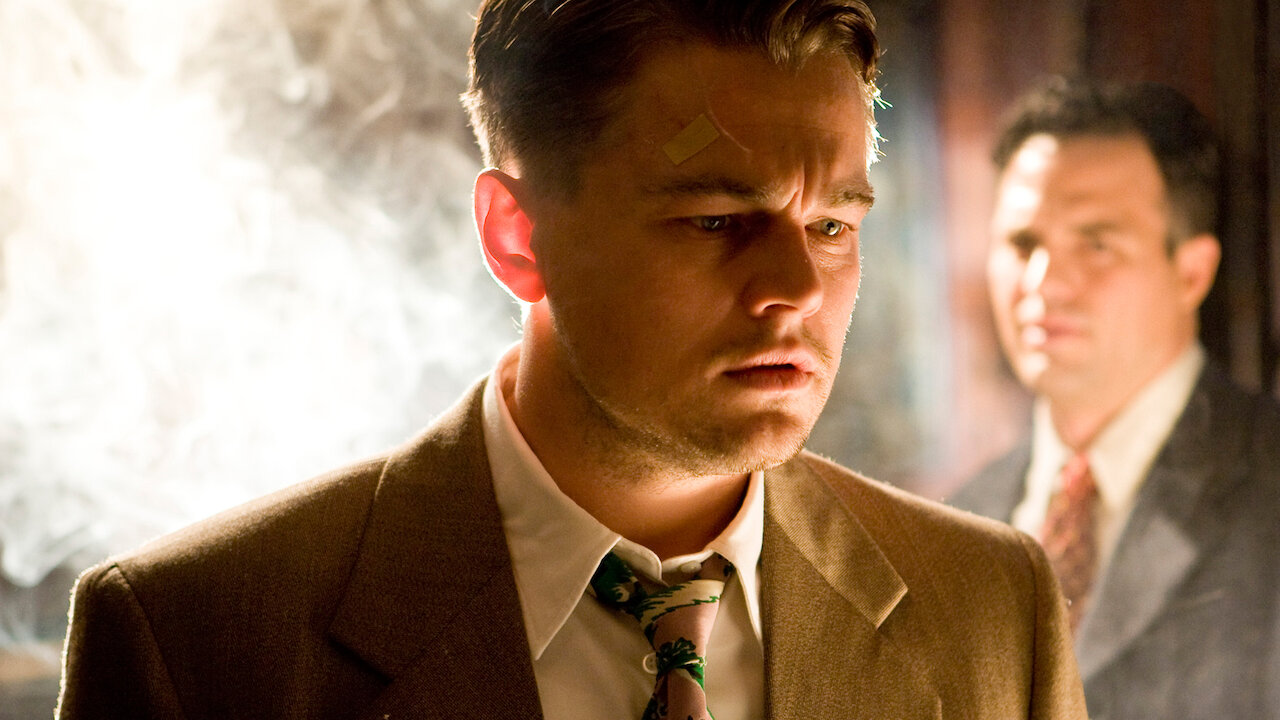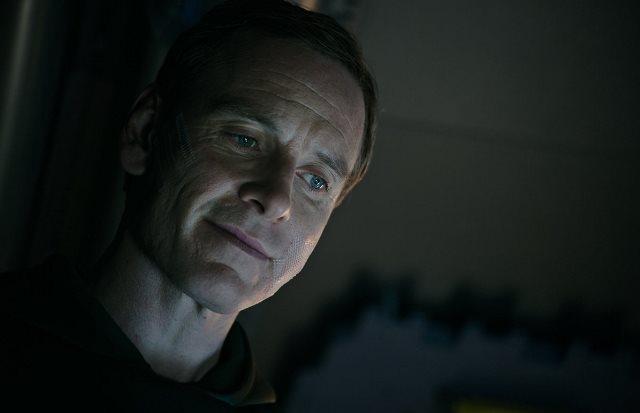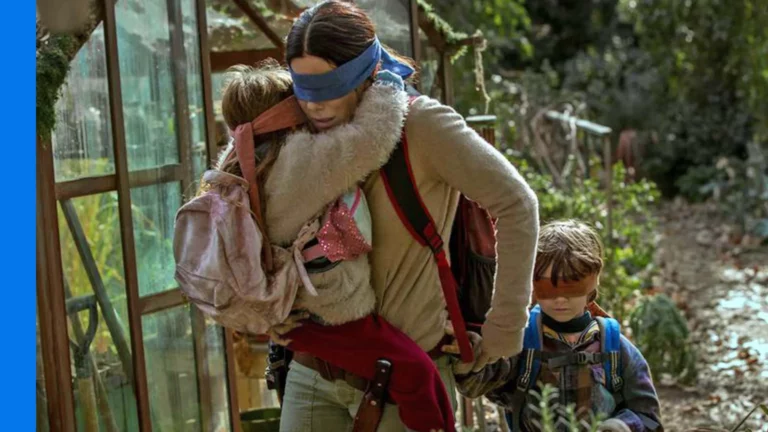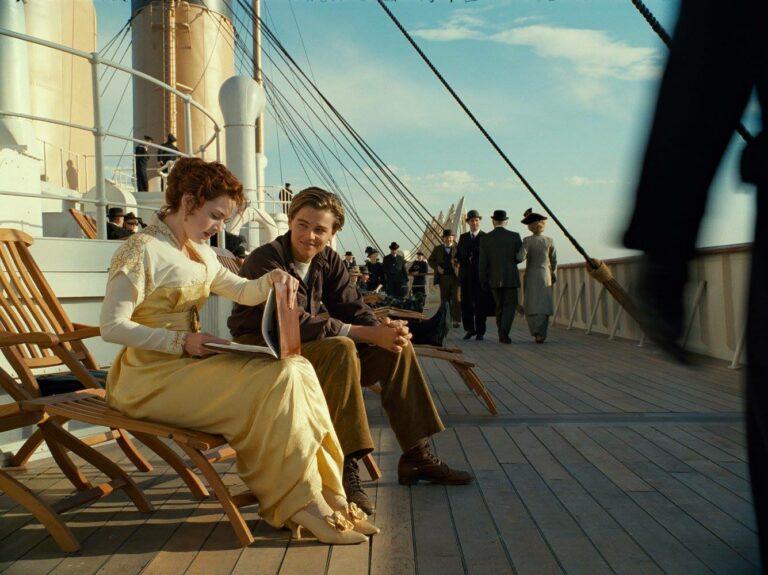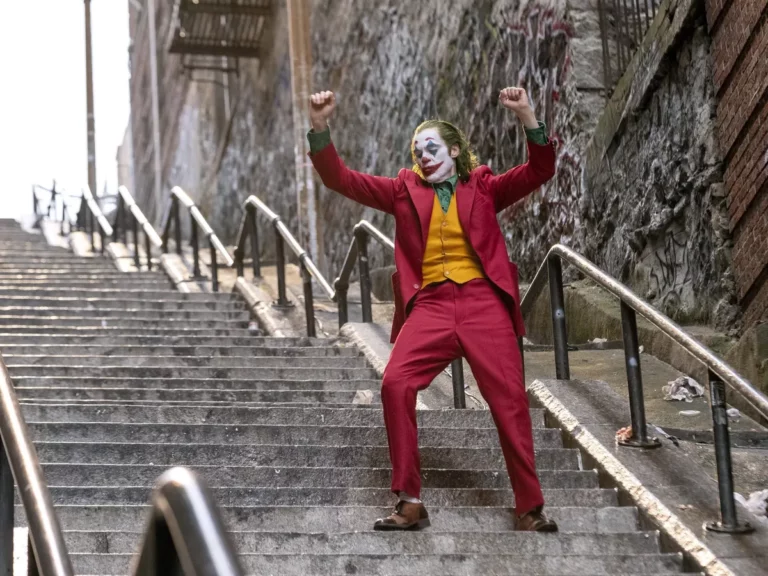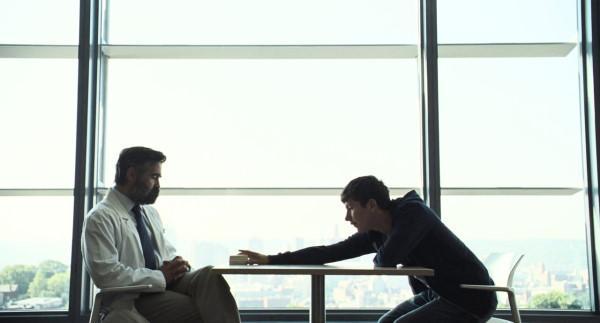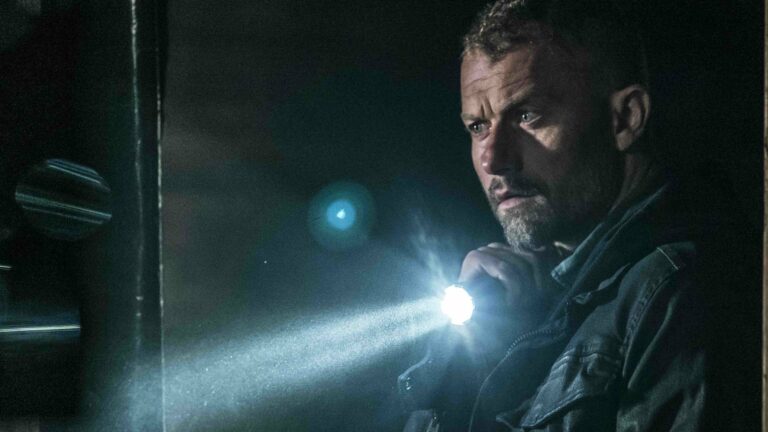Shutter Island Explained. The War Inside Teddy`s Head
Shutter Island is one of the movies that provoke debates even after a decade since its release. There are numerous versions of the meaning of Shutter Island and what is really going on in Martin Scorcese`s detective horror thriller. Let`s dive in and try to unveil what that film says to us.
By the way, why do we need to decrypt movies? Why don`t creators make them simple and clear for anyone to understand? Because in order to deliver his thoughts, the creator has to hide them in the enticing story. Otherwise, no one would listen to him. Does the old world inevitably collapse if it persists in the breath of changes? Boring. Titanic movie? Give us two tickets.
The more complex the film, the more theories it may provoke. Shutter Island is a complex movie. Even more complex than you would anticipate.
The film tells the story of US Marshal Edward “Teddy” Daniels who arrives along with his partner Chuck at Ashecliffe Hospital for the criminally insane on Shutter Island. Marshals are trying to investigate the disappearance of patient Rachel Solando who killed her three children. The hospital staff headed by Dr. John Cawley seems to be very tense and uncooperative, so Teddy has to take the initiative into his own hands. Then it becomes clear that Daniels` real interest is to find a man called Andrew Laeddis who allegedly burned the house with Teddy`s wife inside.
There is a plot twist everybody is aware of that marshal`s story is a fiction and science experiment. There is no man called Teddy Daniels, it`s just an imaginable person created by Andrew Laeddis, the patient of the hospital. Andrew himself killed his mentally ill wife after she drowned their three children. He couldn’t bear the trauma and created a sub-personality. Dr. Cawley decided to make an experiment allowing Andrew to play the role of the marshal until he reveals the truth.
Don`t trust anyone
First and foremost: even after the truth is revealed by Dr. Crawley to Teddy Daniels, we cannot trust what we saw, because the whole story is told by an unreliable narrator, Andrew Laeddis himself. We, the spectators, are literally sitting in his head watching the projection of his consciousness and the memories of events.
Hints to that start right in the opening scene. The ship sails out of the fog. And the fog dissipates unrealistically fast. Then Teddy Daniels, after vomiting, washes his face in the ship`s sink, saying “It’s just water. A lot of water”.
When Teddy exits the cabin, he puts his coat on against the bright sunlight from the window. In the very next shot, the marshal steps out of the cabin and there is no sunlight on the deck at all. The sky is completely dark and cloudy, and the storm is coming. The sun vanished instantly.
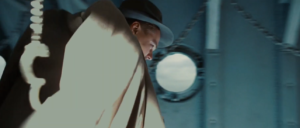
How could it even be possible in real life? Well, it could not. That`s why it`s happening either in dreams or in memories. The following dialogue between Teddy and Chuck on the deck shows the same. When the camera switches between angles, two characters change their positions, disrupting the consistent time flow, as it usually occurs in memories.
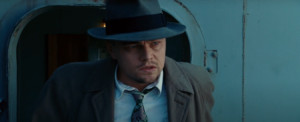
The opening scene is crucial for every film. It sets the atmosphere of the movie and plants all the seeds that grow later. Shutter Island let all the seeds grow in full.
Different realities
There are two movies in this movie, actually. One tells about events more or less how they were happening in reality, and the second is Andrew`s perception of them. The tricky part is to divide them from each other since they are taking place simultaneously and seamlessly in the film. A good example of this hidden sub-meaning is the conversation between Teddy and George Noyce. In this scene, Teddy lights matches without any real necessity, there is a lot of sunlight coming through the window. But the matches are a triggering point for his subconsciousness, it`s a psychic necessity, and we watch two conversations at once. When Noyce speaks, and we see him, his right hand is holding his head from above. When Teddy replies, Noyce`s hand is holding the bars, like it was doing it all the time. So what George said might be real, but Teddy`s answers are his imagined reproduction of the talk.
But why is that? Because the human brain is not able to recall the past in the proper order after a traumatic experience. Gladwell Malcolm in his bestseller Talking To Strangers describes the experiment of psychiatrist Ray Charles. Charles took soldiers and ran a mock interrogation on the enemy`s base. Besides the fact that soldiers in these fake interrogations unexpectedly showed as high levels of cortisol as in a real fight, the experiment revealed something else. None of the militaries recognized Charles the next day after the procedure, because their brains didn`t want to. Soldiers and officers got affected so badly that their brains decided to completely exclude the “executor” Ray Charles from their memories.
When the brain reconstructs reality, there are some losses, and the brain has to bridge everything to create a logical and plausible reality. Andrew`s consciousness does it all the time. It creates events and people that never existed to convince us that Andrew is someone else, a dangerous pyromaniac, who killed Teddy`s wife.
This is a big part of the story, but it`s not exhaustive. Murdering the wife was just a consequence of Andrew`s experience in WWII when he killed a lot of Nazis in revenge for tortured women and children. “Please set me free,” asks Andrew`s wife after drowning the children, and he didn`t find anything better than to shoot her. Andrew doesn`t know any other way to solve the problem, to respond to violence. But he is resisting, he is trying to find the way out.
One of the most important scenes in the movie, even though it doesn`t develop the plot at all, is a car ride between Andrew and a warden. The warden picks up Andrew after the storm. Then that dialogue takes place.
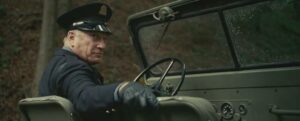
Warden: Did you enjoy God’s latest gift?
Teddy: What?
W: God’s gift. The violence. When I came downstairs to my home and I saw that tree in my living room, it reached out for me with a divine hand. God loves violence.
T: I hadn’t noticed.
W: Sure you have. Why else would there be so much of it? It’s in us. It’s what we are. We wage war, we burn sacrifices and pillage and plunder and tear at the flesh of our brothers. And why? Because God gave us violence to wage in his honor.
T: I thought God gave us moral order.
W: There’s no moral order as pure as this storm. There’s no moral order at all. There’s just this: can my violence conquer yours?
T: I’m not violent.
W: Yes you are. You’re as violent as they come. I know this because I’m as violent as they come. If the constraints of society were lifted and I was all that stood between you and a meal you would crack my skull with a rock and eat my meaty parts. Wouldn’t you? Cawley thinks you’re harmless, that you can be controlled, but I know different.
T: You don’t know me.
W: Oh but I do.
T: No you don’t, you don’t know me at all.
W: Oh I know you. We’ve known each other for centuries.
That ride never happened in real life. When Teddy gets in the car, it`s cloudy. When they drive, it`s sunny. The military jeep is riding too smooth like it`s gliding on the lake, not driving on a bumpy road.
One part of Teddy tries to convince him that violence is normal and that even God supports it. Another part of Teddy is trying to disagree. It is an internal dialogue, the inner fight between light and darkness. That`s why Dr. Cawley said once “You`re on the front line of a war, Andrew. And here, in this place, it comes down to you”.
Of course, it`s not just about Andrew.
Tolegen Baitukenov, MovieTerra

